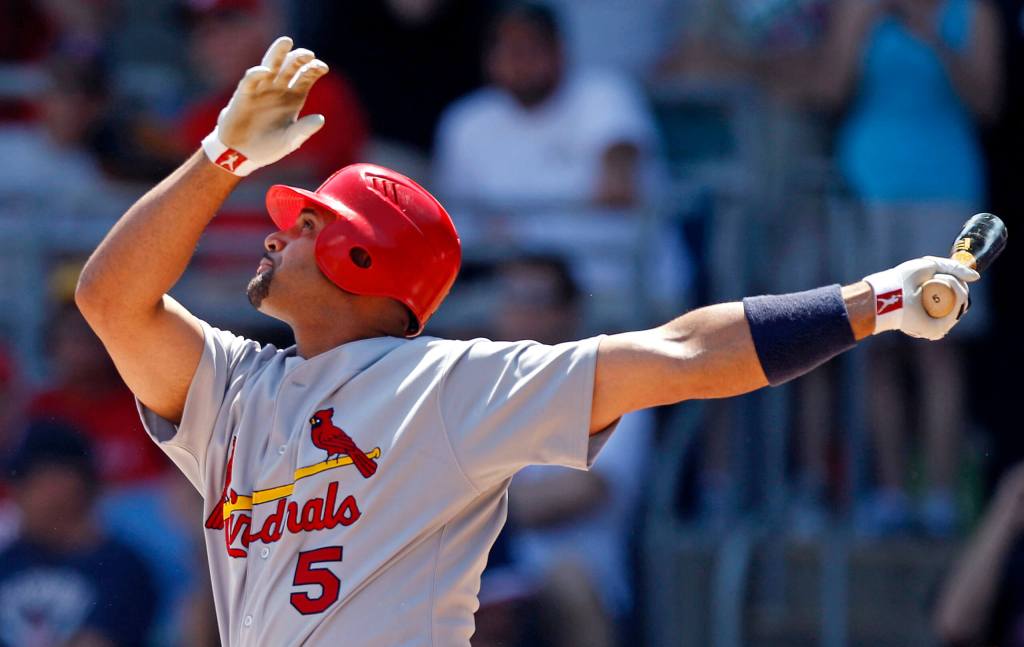
“I feel like J. Robert Oppenheimer having invented the atomic bomb. I mean, look what I’ve unleashed on the world.”
– Daniel Okrent, founder of Rotisserie Baseball
Bryan Curtis, columnist for the New York Times, once called the birth and technologically induced explosion of fantasy baseball as a “revolution in fandom.”
According to Curtis, “In fantasy baseball, no one is held hostage by the whims and follies of the Lords of Baseball, as the sportswriter Dick Young used to call them, or the indiscretions of the players. You have the feeling of Steinbrenner-like control over the lineups, the rules, even the personnel of the league. If the pose of baseball fans has long been the helpless crouch, the alternative universe of fantasy baseball offers fans an illusory sense of empowerment.”
However, with this great sense of power and control comes great responsibility when making choices for your fantasy baseball team. The painstakingly tough decisions you make on draft day could have long-lasting effects on your team and psychological well-being. While there’s no greater feeling than getting maximum value of a late-round sleeper, there’s no greater pain than overpaying for a hyped rookie who fizzles out and gets demoted mid-season.
With so many choices to be made during the fantasy season, there are hundreds upon hundreds of fantasy “experts” who will provide you with the tools necessary to crush the competition and dominate your league. I’m here to tell you that such “experts” and sites boasting information that will help you dominate your league simply doesn’t exist.
The first thing you should know about fantasy baseball is that it was created to give the manager (you) complete and uncontested rule over the players you select. While this column can provide you with tools and theories to maximize the potential of succeeding at fantasy baseball, you are the best person to manage your team.
If you are willing to think for yourself while not abiding by rankings as if they were scripture, the richer your fantasy baseball experience will be in 2011. This article won’t provide you with the keys to victory but with tools to help improve your odds of succeeding in 2011.
Knowledge is Power
One of the most popular and widely used fantasy baseball league settings is the 10-team mixed, head-to-head league. For the purposes of this column, most of the analysis will be specific to 5×5 scoring (batting average, runs, home runs, RBIs and stolen bases for hitters; wins, saves, strikeouts, ERA and WHIP for pitchers.)
The first rule, at least for me, is knowing your league rules and settings inside and out before heading into your draft. With the unlimited amount of options for customized settings, being familiar with draft settings, rules on acquiring free-agents and scoring settings are crucial for preparing your research for the draft. If it’s a 10-team league with 25 roster spots, you should expect to prepare to draft from the top 250 players available in the pool. If the amount of players in your league or roster spots are altered, the ways in which you approach your draft should shift accordingly. Every rule in your league could make a huge difference in how you select your team. Can you use a disabled list? Can you change your lineups weekly? Daily? Is there a limit to how many transactions you can make a week? These are all questions that often go overlooked when one signs up for a league. Knowing your rules inside and out is the first step to victory.
To get a better sense of the baseball world and more specifically, fantasy baseball, I suggest making reading a priority. In our digital age, it’s easier than ever to receive information on the fly from multiple platforms as soon as they happen. For our fantasy baseball purposes, I suggest setting up a Twitter account and following sources that provide up to the second updates on players, teams and the usual musings that occur through a baseball season. Twitter is an incredibly useful tool for finding out the latest injury reports and could make the difference between benching or starting a player that has been scratched right before a game.
While I’ve warned to be weary of those who call themselves fantasy “experts,” finding sites that offer intelligent and thoughtful analysis that should guide your decisions throughout the season could be useful. There are millions of sites dedicated to fantasy baseball analysis and the more info you have that you can trust, the better off you’ll be.
Having said that, knowledge is a tool each fantasy baseball player most posses before even deciding on the players you favor. The more you know about players, lineups, schedules, sleepers, injuries, etc., the better your chances of making positive decisions for your team are.



























